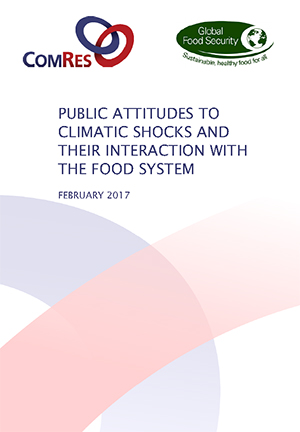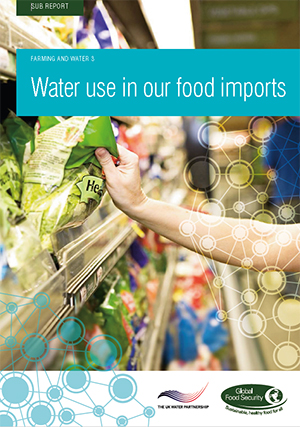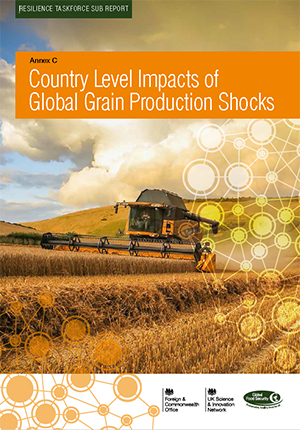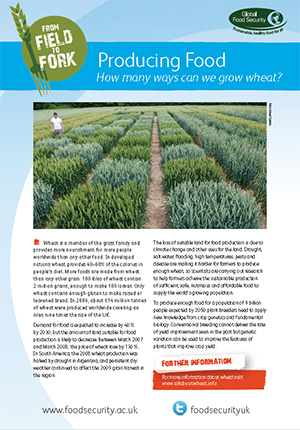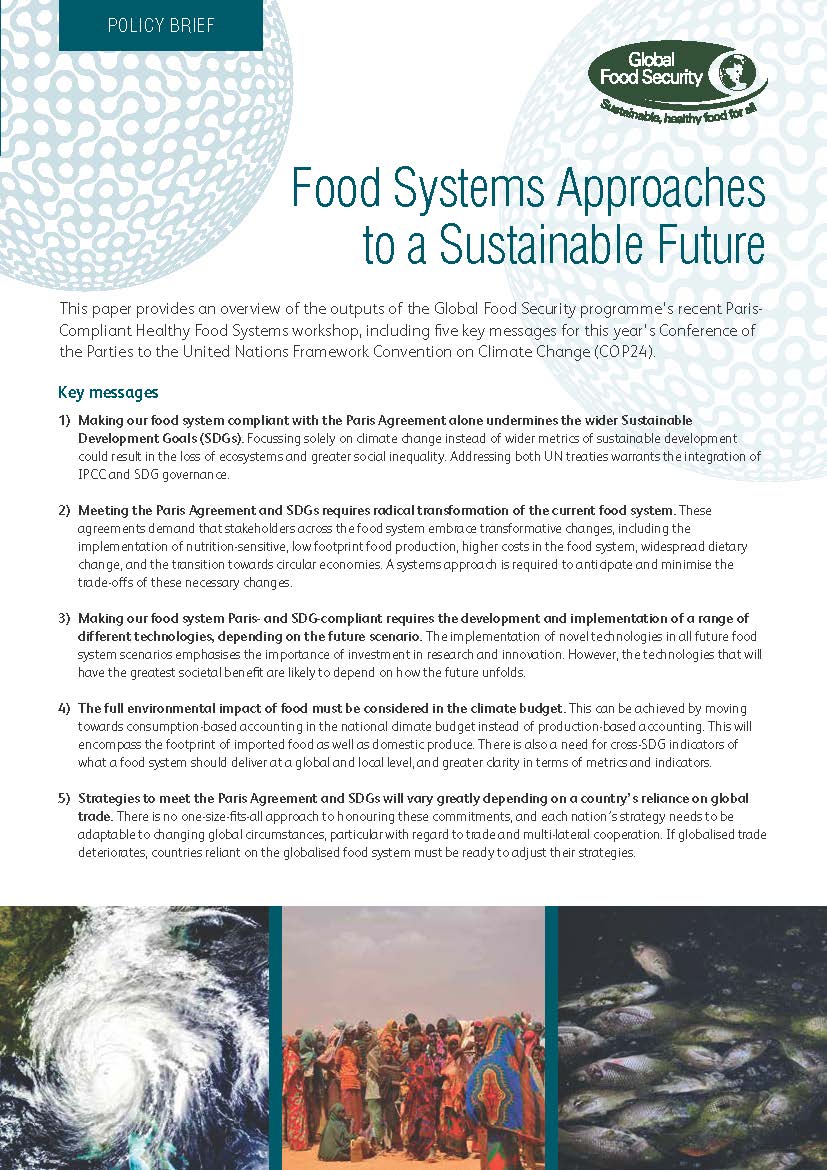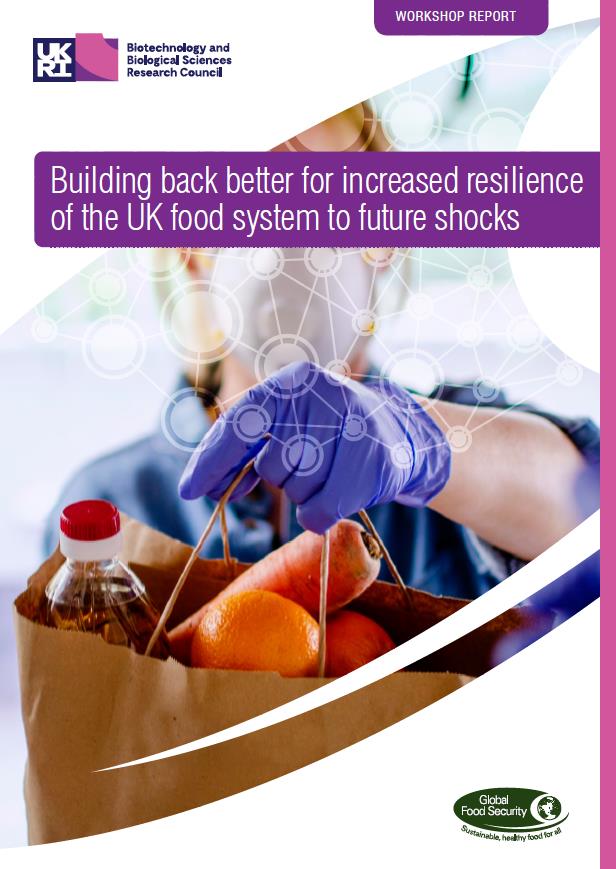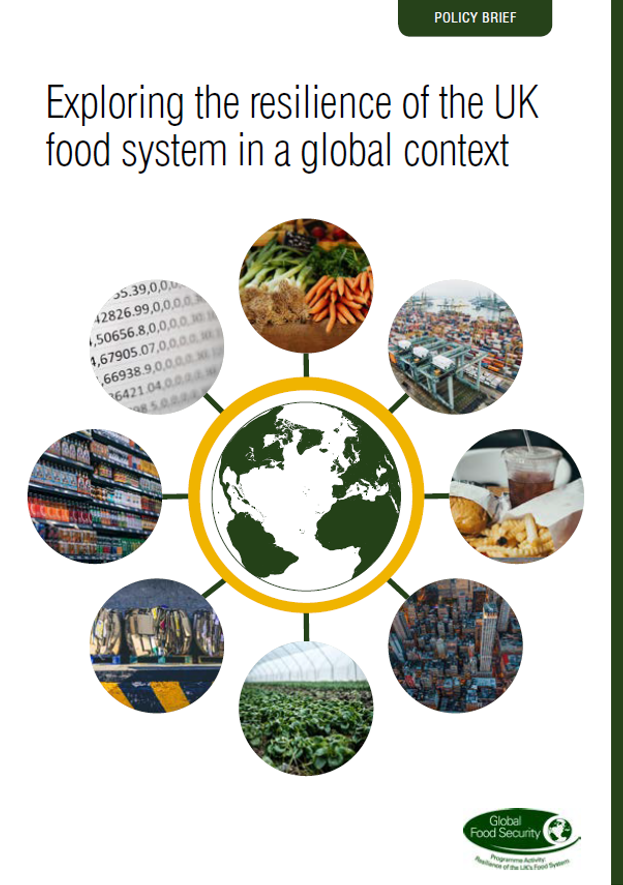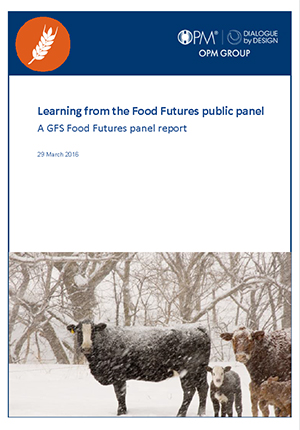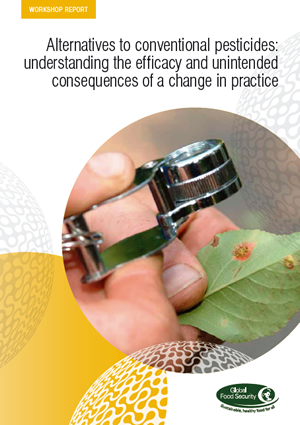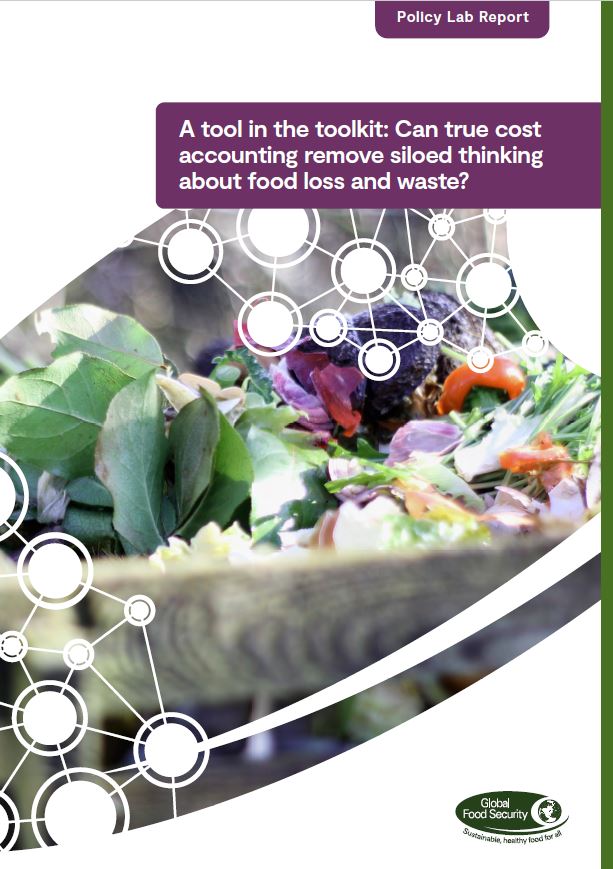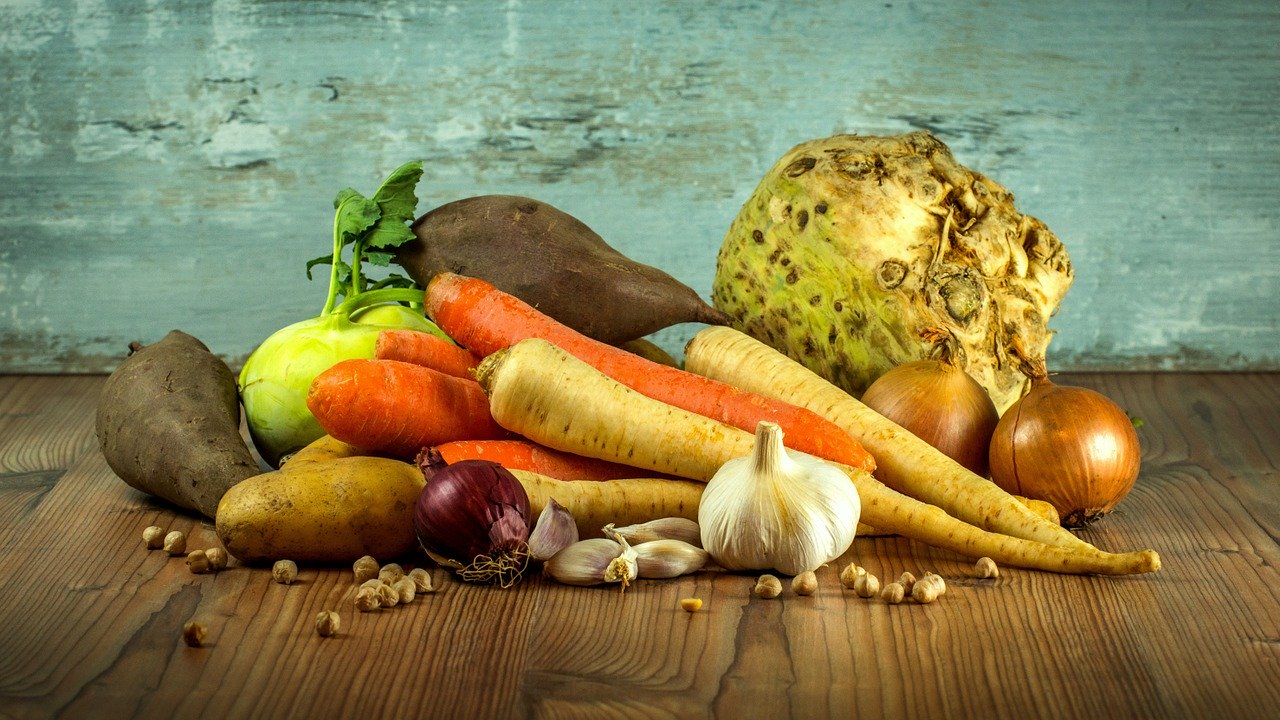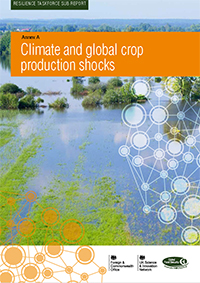
Resilience taskforce sub report – Annex A: Climate and global crop production shocks
This report presents a set of scenarios for weather-driven production shocks that are plausible in the present or near future climate. This work highlights the risks extreme weather poses to global food production, recommending further investigation into the meteorological teleconnections between major food production regions and the probability of coincident shocks in multiple breadbaskets.
(You can view PDF documents by downloading a PDF reader. We recommend using Google Chrome or Mozilla Firefox web browsers.)


